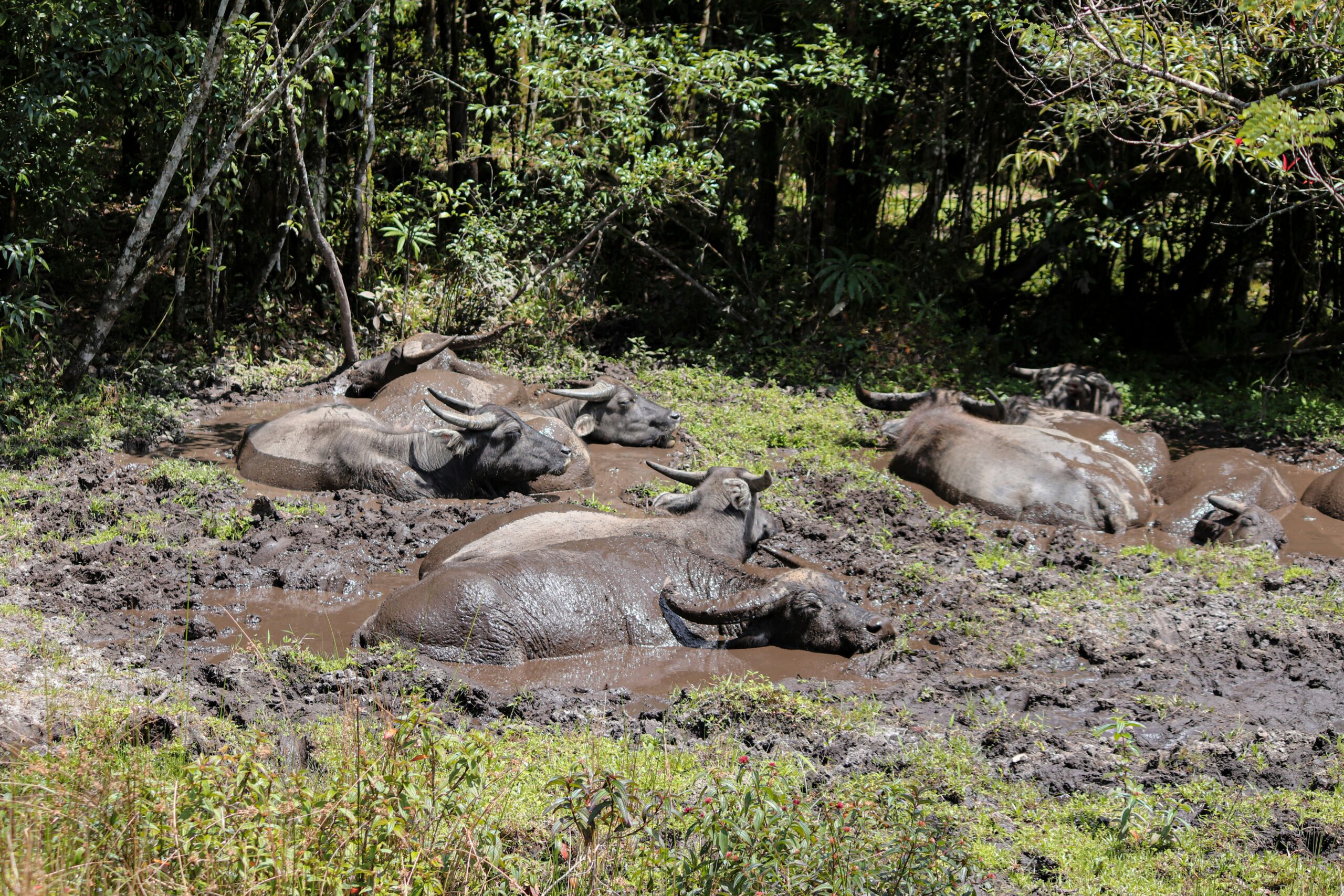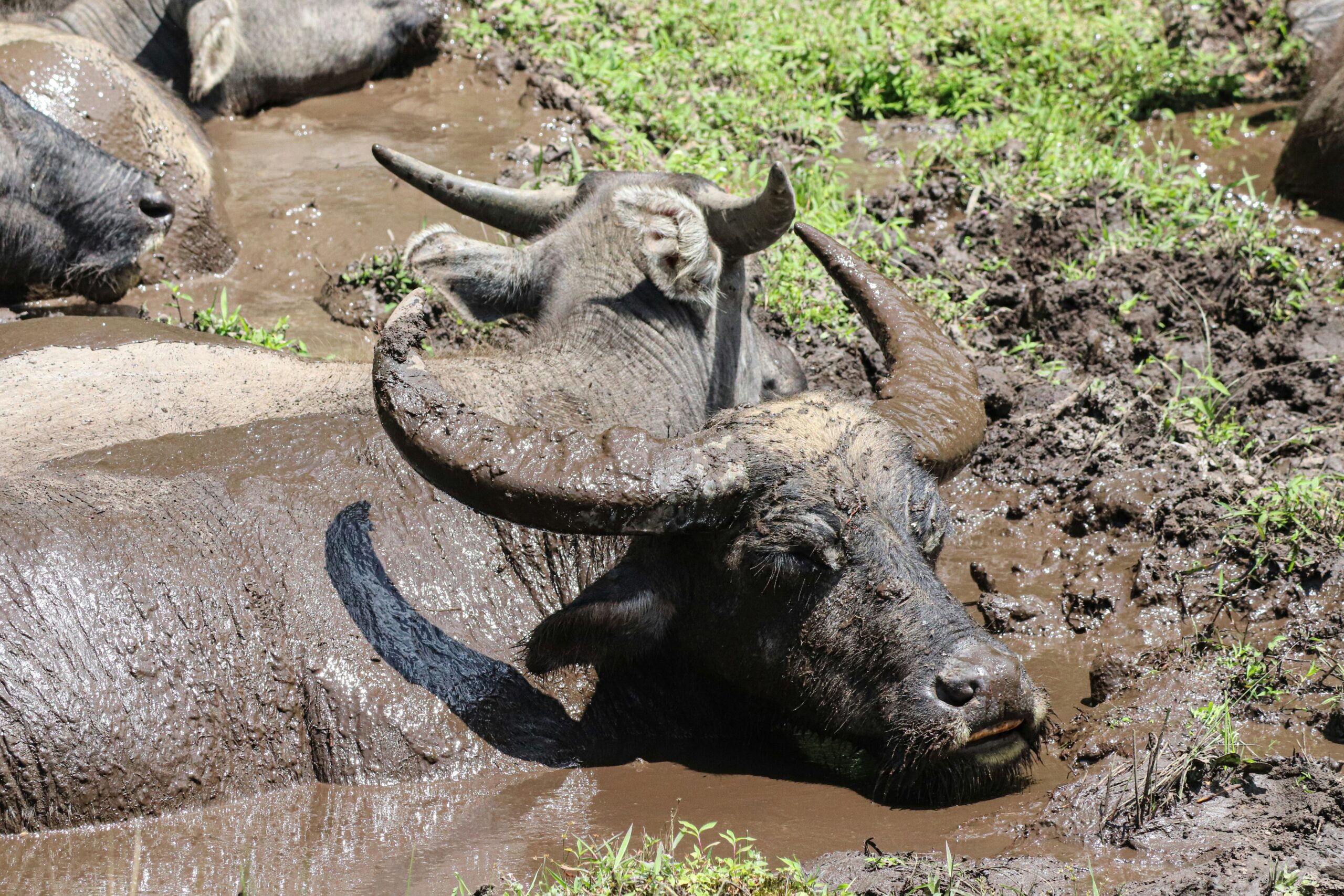If you’re an outdoor enthusiast who loves exploring the wilderness, you might have wondered whether you can use hunting optics for activities like hiking or camping. Well, the good news is that hunting optics can indeed be a versatile tool that can enhance your experience in the great outdoors. Whether you’re trying to spot wildlife, navigate through unfamiliar terrain, or simply admire the breathtaking views, using hunting optics can provide you with a whole new level of clarity and precision. In this article, we’ll explore the various ways in which hunting optics can be a valuable asset for your hiking or camping adventures. So, grab your binoculars and let’s dive into the world of outdoor optics!
Understanding Hunting Optics
Hunting optics are specialized tools designed to enhance visibility and accuracy during hunting activities. These optics help hunters locate and track targets more effectively, thus improving their chances of a successful hunt. The primary function of hunting optics is to provide magnification and clear vision, enabling hunters to precisely spot targets from a distance. Whether it’s binoculars, spotting scopes, or rifle scopes, these optics play a crucial role in maximizing the hunting experience.
Different Types of Hunting Optics
There are various types of hunting optics available in the market, each serving a specific purpose. Binoculars are widely used by hunters and are essential for spotting and tracking game from a distance. They provide a wider field of view compared to other optics, allowing hunters to scan the surroundings for potential targets efficiently. Spotting scopes, on the other hand, provide higher magnification and are perfect for observing game in detail, especially in open areas. Rifle scopes are attached to firearms and serve to aim more accurately by providing magnification, reticles, and other features for improved target acquisition.
How Hunting Optics Enhance Hunting Experience
Hunting optics greatly enhance the overall hunting experience by providing hunters with a range of benefits. Firstly, they extend the visual range, allowing hunters to see targets that would otherwise be difficult to detect with the naked eye. This increased visibility improves target identification and tracking, increasing the likelihood of a successful hunt. Secondly, hunting optics offer improved accuracy by providing magnification and reticles that assist in aiming and making precise shots. Additionally, by reducing eye strain through enhanced visibility, hunting optics enable hunters to spend longer periods in the field with increased focus and stamina.
Similarities between Hunting and Hiking/Camping
While hunting and hiking/camping may seem like distinct activities, they share some commonalities when it comes to the equipment used and the purposes they serve.
Basis of Equipment Use for Both Activities
In both hunting and hiking/camping, individuals rely on specific equipment to enhance their overall experience and achieve their goals. Both activities often require the use of backpacks, tents, sleeping bags, and navigation tools like compasses or GPS devices. Additionally, appropriate clothing, footwear, and accessories such as headlamps, knives, and multi-tools are essential for both hunting and hiking/camping. This overlap in equipment highlights the similar needs and preparations required for these outdoor activities.
Shared Purposes of Hunting and Hiking/Camping
Although hunting and hiking/camping may have different primary objectives, such as acquiring food versus recreational exploration, they share common purposes. Both activities allow individuals to connect with nature, appreciate the environment, and engage in outdoor physical activity. Additionally, both hunting and hiking/camping foster self-reliance, resilience, and skill development, promoting personal growth and an appreciation for the natural world. The shared connection to the outdoors creates a sense of adventure and exploration that attracts individuals to both hunting and hiking/camping.

Using Hunting Optics for Hiking
While hunting optics are primarily designed for hunting purposes, they can also be utilized during hiking trips to enhance the overall experience.
Benefits of Using Hunting Optics for Hiking
Using hunting optics during hiking provides several benefits. Firstly, binoculars or spotting scopes with higher magnification allow hikers to observe wildlife and the surrounding environment in greater detail, enhancing the overall appreciation of nature. Additionally, these optics can help hikers navigate tricky terrains by providing a better view of potential hazards or obstacles from a distance. Hunting optics also contribute to safety during hiking, as they allow hikers to spot other hikers, landmarks, or potential dangers from afar.
Possible Limitations and Drawbacks
While hunting optics can be beneficial for hiking, there are some limitations to consider. The weight and bulkiness of some hunting optics, especially spotting scopes, may be a factor to bear in mind while packing for a hiking trip. Carrying heavy equipment for an extended period can lead to fatigue and discomfort. Additionally, hunting optics are often designed for specific uses, such as long-range spotting or target acquisition, which may not be necessary for a typical hiking trip. It’s crucial to consider the specific requirements and limitations of your hiking adventure before deciding to bring hunting optics.
Suitable Types of Hunting Optics for Hiking
When choosing hunting optics for hiking, it’s important to prioritize lightweight and compact options. Binoculars are typically the most suitable choice for hiking, as they offer a good balance between magnification, portability, and field of view. Look for binoculars with a moderate magnification range (8x to 10x) and a compact design that can be easily carried in your backpack or worn around your neck. Optics with features such as image stabilization or weatherproofing can also be valuable additions for a hiking adventure.
Using Hunting Optics for Camping
Similar to hiking, hunting optics can also enhance the camping experience by providing a closer connection to the surroundings.
Benefits of Using Hunting Optics for Camping
Using hunting optics during camping allows campers to enjoy a more immersive and detailed view of the natural environment. Binoculars or spotting scopes can provide a clearer view of wildlife, scenic landscapes, and celestial bodies. This enhances the camping experience by allowing campers to appreciate the beauty of nature in greater detail. Hunting optics also aid in activities such as bird watching or stargazing while camping, providing a unique opportunity to connect with the natural world.
Possible Limitations and Drawbacks
There are a few limitations to using hunting optics for camping. Similar to hiking, weight and size can be a consideration, especially if camping involves long walks or backpacking trips. Additionally, the specific magnification and capabilities of hunting optics may not be necessary for all camping activities. While they can enhance specific aspects of camping, such as wildlife observation or stargazing, their utility may be limited in other camping scenarios. It’s important to assess the specific needs and limitations of your camping trip before deciding to bring hunting optics.
Appropriate Types of Hunting Optics for Camping
When selecting hunting optics for camping, prioritize versatility and ease of use. Binoculars with a wider field of view and moderate magnification are a good choice for most camping activities. Look for lightweight options that can be easily transported and comfortably used for extended periods. Spotting scopes can also be useful for specific camping scenarios, such as bird watching or observing distant natural features. Consider factors like weather resistance, durability, and ease of focus adjustment when choosing hunting optics for camping.

Practical Tips on Using Hunting Optics for Non-Hunting Purposes
If you decide to use hunting optics for hiking or camping, it’s important to follow some practical tips to optimize their use and ensure safety.
Maintaining the Hunting Optics
Proper maintenance is essential to ensure the longevity and functionality of your hunting optics. Regularly clean lenses with a soft brush or microfiber cloth to remove dust and debris. Avoid using abrasive materials that can scratch the lenses. Store your optics in a protective case when not in use, and avoid exposing them to extreme temperatures or moisture. Regularly inspect for any signs of damage or wear and address them promptly to prevent further issues.
Maximizing the Use of Hunting Optics for Hiking or Camping
To maximize the benefits of hunting optics during hiking or camping, consider the specific activities you’ll be engaging in. Adjust the focus and magnification settings accordingly for optimal viewing. Experiment with different lighting conditions and angles to get the best view. Position yourself in comfortable and stable positions, especially when using high-magnification optics. Take breaks to avoid eye strain and fatigue, as prolonged use of hunting optics can be tiring.
Safety Measures when Using Hunting Optics
When using hunting optics for non-hunting purposes, it’s important to follow safety guidelines. Avoid pointing optics at people or reflective surfaces, as the magnification can inadvertently focus intense sunlight and cause eye injuries or fire hazards. Use caution when moving or navigating while using optics to prevent accidents or falls. Be mindful of your surroundings and potential hazards, as focusing solely on the optics can increase the risk of accidents. Additionally, always follow local regulations and guidelines regarding the use of optics in specific areas or protected wildlife habitats.
Popular Brands of Hunting Optics Suitable for Hiking and Camping
Various brands offer hunting optics that are versatile and suitable for both hiking and camping purposes. User reviews and expert recommendations play a crucial role in determining the most popular brands in the market.
Brands based on User Reviews
Some of the popular brands of hunting optics suitable for hiking and camping, based on user reviews, include Vortex, Leupold, Nikon, and Bushnell. These brands consistently receive positive feedback for their quality, performance, and reliability. Their products often offer a good balance between affordability and functionality, making them popular choices among outdoor enthusiasts.
Characteristic Features of the Recommended Brands
The recommended brands for hunting optics suitable for hiking and camping are known for their innovative features and attention to detail. They prioritize lightweight designs, ergonomic grips, and user-friendly adjustments to ensure comfort and ease of use. These brands also focus on optical clarity, weatherproofing, and durability, allowing users to rely on their optics in various outdoor conditions.
Pros and Cons of the Popular Brands
Each of the popular brands has its own advantages and limitations. Vortex, for example, is applauded for its exceptional customer service and warranty. Leupold is known for its optical quality and precision engineering. Nikon offers a wide range of options at different price points, catering to various budgets. Bushnell provides reliable optics with a focus on affordability. While these brands have distinct strengths, it’s important to carefully consider your specific needs and preferences when selecting the most suitable hunting optics for hiking or camping.

Personal Experiences and Reviews
To gain deeper insights into using hunting optics for hiking or camping, it’s valuable to explore personal accounts and reviews from users who have utilized these optics in non-hunting scenarios.
Personal Accounts of Using Hunting Optics for Hiking or Camping
Numerous outdoor enthusiasts have shared their personal experiences of using hunting optics for hiking or camping. Many laud the improved clarity and magnification these optics provide, allowing them to appreciate the details of their surroundings. Users who enjoy bird watching or observing wildlife during hikes have reported a more immersive experience with the aid of hunting optics. Additionally, hikers and campers have found comfort in the added safety and security provided by the increased visibility offered by these optics.
Critical Reviews and Ratings by Users
While the overall feedback for hunting optics used for hiking or camping is positive, some users have highlighted potential drawbacks. These include the weight and bulkiness of certain optics, which can become burdensome during long hikes or when carrying additional equipment. Some users have also found certain models to have limited durability or difficulty in adjusting focus. Negative experiences are generally outweighed by positive reviews, but it’s essential to consider individual preferences and requirements when deciding which hunting optics to purchase.
Best Practices Shared by Users
Users who have successfully utilized hunting optics for hiking or camping have shared some best practices. They emphasize the importance of researching and selecting the optics based on specific needs and preferences. Taking the time to experiment with different settings and positions is also recommended to optimize the viewing experience. Users also stress the significance of maintaining and protecting the optics to ensure long-term functionality and performance. By following these best practices and incorporating personal preferences, users can make the most of hunting optics during their non-hunting adventures.
Legal and Ethical Considerations
Before using hunting optics for non-hunting purposes, it’s crucial to be aware of the legal restrictions and ethical principles governing their use.
Legal Restrictions on the Use of Hunting Optics
Many jurisdictions have specific regulations regarding the use of hunting optics, even in non-hunting activities. These regulations often relate to protected wildlife and the use of optics in certain protected areas. It’s important to research and understand the laws and regulations of your region to avoid any legal complications. Always adhere to the guidelines and respect the boundaries set by local authorities and environmental agencies.
Ethical Principles on the Use of Hunting Gear for non-Hunting Activities
While using hunting optics for hiking or camping is generally considered acceptable, it’s essential to maintain ethical standards in their use. Respecting wildlife and their habitats is of utmost importance. Avoid disturbing or disrupting wildlife during observation and ensure a safe distance is maintained. Additionally, practice Leave No Trace principles and minimize the impact on the environment while using hunting optics. By adopting ethical practices, users can enjoy the benefits of hunting optics while promoting conservation and responsible outdoor recreation.
Buying Guide for Hunting Optics
When purchasing hunting optics for non-hunting purposes, it’s necessary to consider various factors to make an informed decision.
Price Range and Where to Buy
Hunting optics are available in a wide price range, depending on the brand, features, and quality. It’s essential to establish a budget and prioritize specific requirements when considering price points. Optics can be purchased from various sporting goods stores, outdoor retailers, or online marketplaces. Researching reputable sellers and comparing prices can help find the best deals.
Factors to Consider when Buying Hunting Optics
Several factors should be considered when purchasing hunting optics for non-hunting purposes. The first is the intended use, whether it’s hiking, camping, bird watching, or stargazing. Consider the necessary magnification, field of view, and specific features required for optimal performance. Other factors include the weight, size, and ease of use, especially when considering portability during outdoor activities. Reading reviews and seeking expert advice can provide valuable insights into the quality and suitability of different optics.
Available Alternatives to Hunting Optics for Hiking and Camping
If hunting optics are not readily available or do not meet specific requirements, there are alternative options to consider for hiking and camping. General-purpose binoculars or compact travel scopes can serve well for many outdoor activities. These options are designed to provide decent magnification and versatility without the specific features found in hunting optics. It’s important to assess personal needs and preferences when considering alternatives and prioritize the key functions required for an enjoyable hiking or camping experience.
Conclusion: Is it Recommended to Use Hunting Optics for Hiking or Camping?
In conclusion, using hunting optics for hiking or camping can greatly enhance the overall outdoor experience, provided certain considerations are taken into account.
Summary of Findings
Hunting optics, including binoculars, spotting scopes, and rifle scopes, are designed to improve visibility and accuracy during hunting activities. However, they can also be utilized for non-hunting purposes, such as hiking and camping. Hunting optics offer benefits like increased visibility, improved target identification, enhanced safety, and a closer connection with nature. These optics can be the perfect companion for outdoor enthusiasts looking to observe wildlife, appreciate the environment, and engage in recreational activities.
Final Recommendations and Tips
It is recommended to use hunting optics for hiking or camping with some important considerations in mind. Firstly, choosing the appropriate hunting optics for these non-hunting activities is crucial. Opt for lightweight and compact options, such as binoculars, to ensure ease of use and portability. Consider specific features like magnification, field of view, and weatherproofing to meet the requirements of your outdoor adventure. Carefully maintain and protect the optics to ensure longevity and functionality. Follow safety guidelines and adhere to legal restrictions and ethical principles when using hunting optics in non-hunting settings.
With these recommendations in mind, individuals can confidently make use of hunting optics for hiking or camping, enhancing their overall outdoor experiences and creating memorable moments surrounded by nature.
